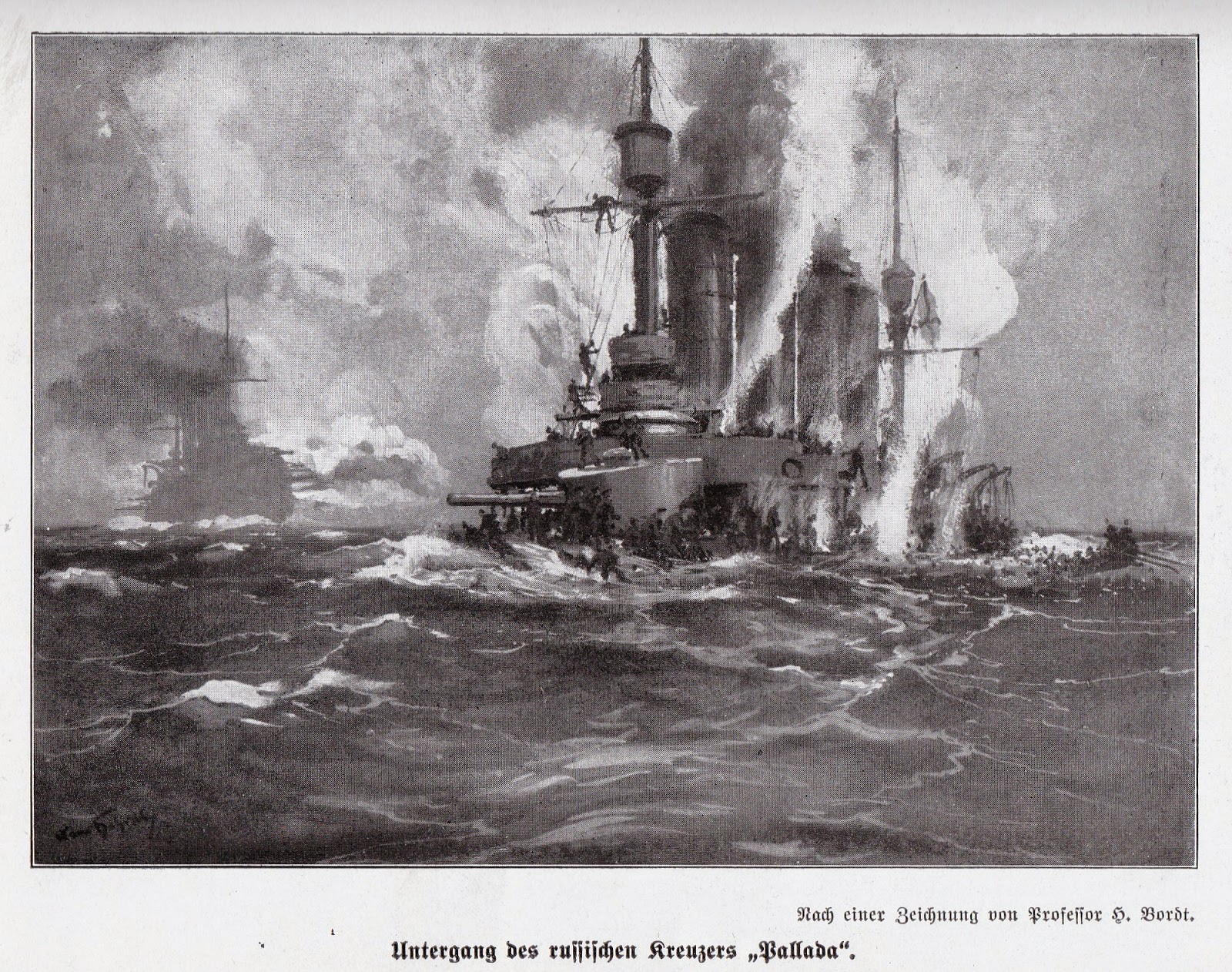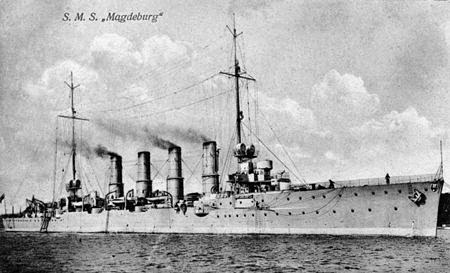
"The Loss of the Russian cruiser Pallada, October 1914 " Topic
1 Post
All members in good standing are free to post here. Opinions expressed here are solely those of the posters, and have not been cleared with nor are they endorsed by The Miniatures Page.
Please remember not to make new product announcements on the forum. Our advertisers pay for the privilege of making such announcements.
For more information, see the TMP FAQ.
Back to the Naval Gaming 1898-1929 Message Board
Areas of Interest19th Century
World War One
Featured Hobby News Article
Featured Link
Featured Showcase Article The fascinating history of one of the hobby's major manufacturers.
Featured Profile Article Another artist requests your comments...
|
| Tango01 | 18 Dec 2014 10:53 p.m. PST |
"This 7750 ton vessel, armed with a main armament of two 8-inch and eight 6-inch guns, plus smaller weapons, was already obsolete then she was commissioned in 1911. In overall configuration – single bow and stern chasers and her remaining heavy weapons in casemates – she had more in common with doomed British counterparts, such as Aboukir, Cressey, Hogue and Good Hope, built a decade earlier, than with the battle-cruisers that were already replacing armoured cruisers in the British and German navies. Pallada was however of only half the displacement of the old British cruisers and one wonders why money was ever invested in her and in her sisters Bayan and Makarov. Though the Pallada was the first Russian warship to be lost in World War 1 she had already provided a service of inestimable value, even though it came about by pure chance. The tltra-modern German cruiser Magdeburg had run aground off the Estonian coast on 26th August and efforts by a destroyer to tow her free had proved unsuccessful. While the attempt continued the Pallada arrived on the scene with another cruiser, the Bogatyr, one of the few Russian ships to survive operations in the Far East during the Russo-Japanese War. Unable to run, and taken under fire by the Russians, the Magdeburg's crew attempted to scuttle, blowing off the forepart of the ship but leaving the remainder largely intact. More important however was the fact that priority had not been given by the German captain to destruction of the code-books. These the Russians managed to recover from the wreck – a fact that the Germans did not suspect. The need to change the codes was not appreciated and the Russians had won a treasure. The code-book was passed on to the British and was of vital importance in allowing the Royal Navy's "Room 40" – the WW1 centre of code-breaking which was comparable to Bletchley Park in WW2 – to read German naval radio-traffic through much of the war…"


Main page
link Amicalement
Armand |
|

